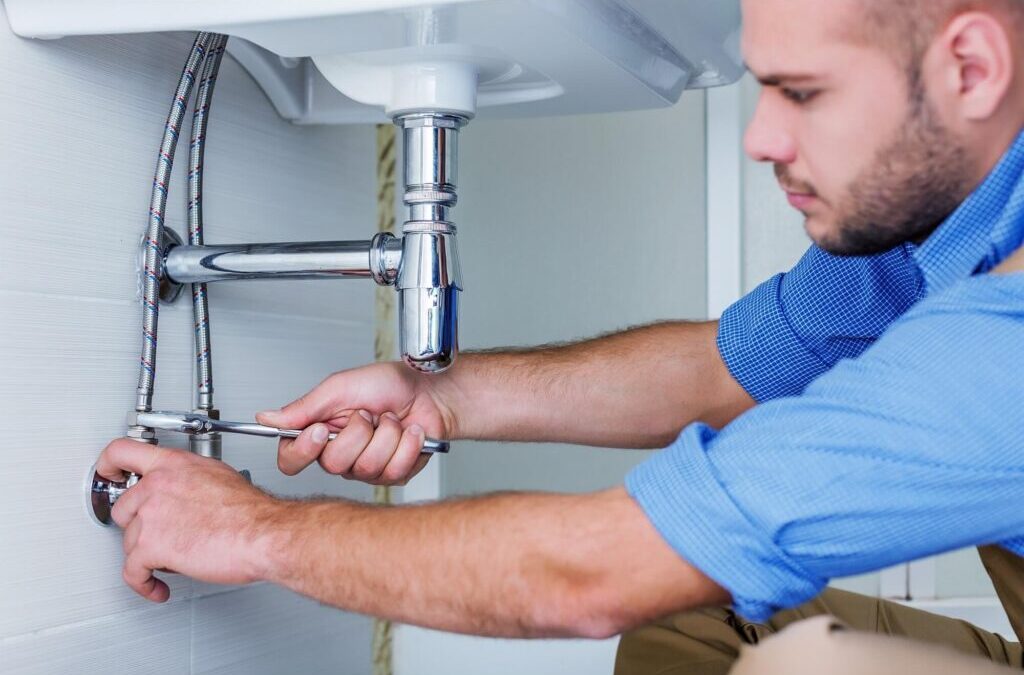Plumbing is the circulatory system of any home, responsible for the flow of water and the removal of waste. In this all-encompassing guide, we’ll delve into every aspect of plumbing, from its essential components to advanced innovations, maintenance tips, and the pivotal role it plays in creating a comfortable and functional living space.
The Core Components
Water Supply System
At the heart of plumbings lies the water supply system. This network of pipes, often connected to a municipal water source, ensures a steady and reliable flow of water to various fixtures and appliances in a home. From faucets to showers, and dishwashers to washing machines, the water supply system is the lifeblood of daily activities.
Drainage System
The drainage system is responsible for removing wastewater and sewage from the home. Drainpipes from sinks, showers, toilets, and other fixtures converge into a comprehensive network that carries waste away from the property. Proper drainage is crucial for maintaining cleanliness and preventing potential issues like clogs and backups.
Ventilation System
Ventilation is a key element of plumbings that often goes unnoticed. Vent pipes allow air to enter the plumbings system, preventing suction and ensuring the smooth flow of water. Ventilation also plays a crucial role in preventing the buildup of harmful sewer gases, contributing to indoor air quality.
Essential Plumbing Fixtures
Faucets
Faucets are the gateway to water in a home. From kitchen sinks to bathroom basins, faucets come in various styles and functionalities. Modern faucets often incorporate features such as touchless operation, water-saving technologies, and advanced finishes for both aesthetics and functionality.
Toilets
Toilets are a fundamental fixture in any home. Modern toilets have evolved with features like dual-flush mechanisms for water conservation, integrated bidets for enhanced hygiene, and smart technologies for a personalized and efficient user experience.
Water Heaters
Water heaters provide the luxury of hot water for bathing, cleaning, and cooking. Traditional tank water heaters and tankless water heaters offer different approaches to meeting the hot water needs of a household. Energy-efficient models and smart water heaters are contributing to sustainability and cost savings.
Innovations Shaping Modern Plumbing
Smart Plumbing Fixtures
The integration of smart technologies is revolutionizing plumbing fixtures. Intelligent faucets, smart toilets with automated features, and advanced shower systems are enhancing both convenience and efficiency. These innovations contribute to water conservation and the creation of a connected and intelligent home.
Water-Efficient Appliances
Modern plumbing extends to water-efficient appliances such as dishwashers and washing machines. These appliances incorporate technologies like sensors, variable water levels, and improved water recirculation, minimizing water usage without compromising performance.
Sustainable Plumbing Materials
Innovative materials like cross-linked polyethylene (PEX) piping have become staples in modern plumbing. PEX offers flexibility, durability, and resistance to corrosion, contributing to more sustainable plumbing systems. The use of recycled and eco-friendly materials further aligns plumbing with environmentally conscious practices.
Maintenance and Troubleshooting
Regular Inspections
Routine inspections by plumbing professionals are essential for identifying potential issues before they escalate. From checking for leaks to ensuring proper water pressure, regular maintenance prolongs the lifespan of plumbing systems and prevents costly repairs.
Common Plumbing Issues
Common plumbing issues include leaks, clogs, and issues with water pressure. Understanding the basics of troubleshooting can help homeowners address minor issues promptly and seek professional assistance when needed.
Plumbing in Green Building Practices
Greywater Recycling
Green building practices often incorporate greywater recycling. Greywater, which includes water from showers and laundry, is treated and reused for non-potable purposes like irrigation. This practice reduces the demand for freshwater resources and promotes sustainability.
Solar Water Heaters
The integration of solar water heaters is another green building trend in plumbing. Harnessing solar energy for water heating reduces reliance on traditional energy sources, resulting in energy savings and a lower environmental impact.
Conclusion
Plumbing is a multifaceted and indispensable component of modern living. From the foundational water supply and drainage systems to advanced smart technologies and sustainable practices, plumbing is a dynamic and evolving field. Understanding the intricacies of plumbing not only ensures the functionality of a home but also opens the door to a world of innovations that contribute to efficiency, comfort, and environmental responsibility.

